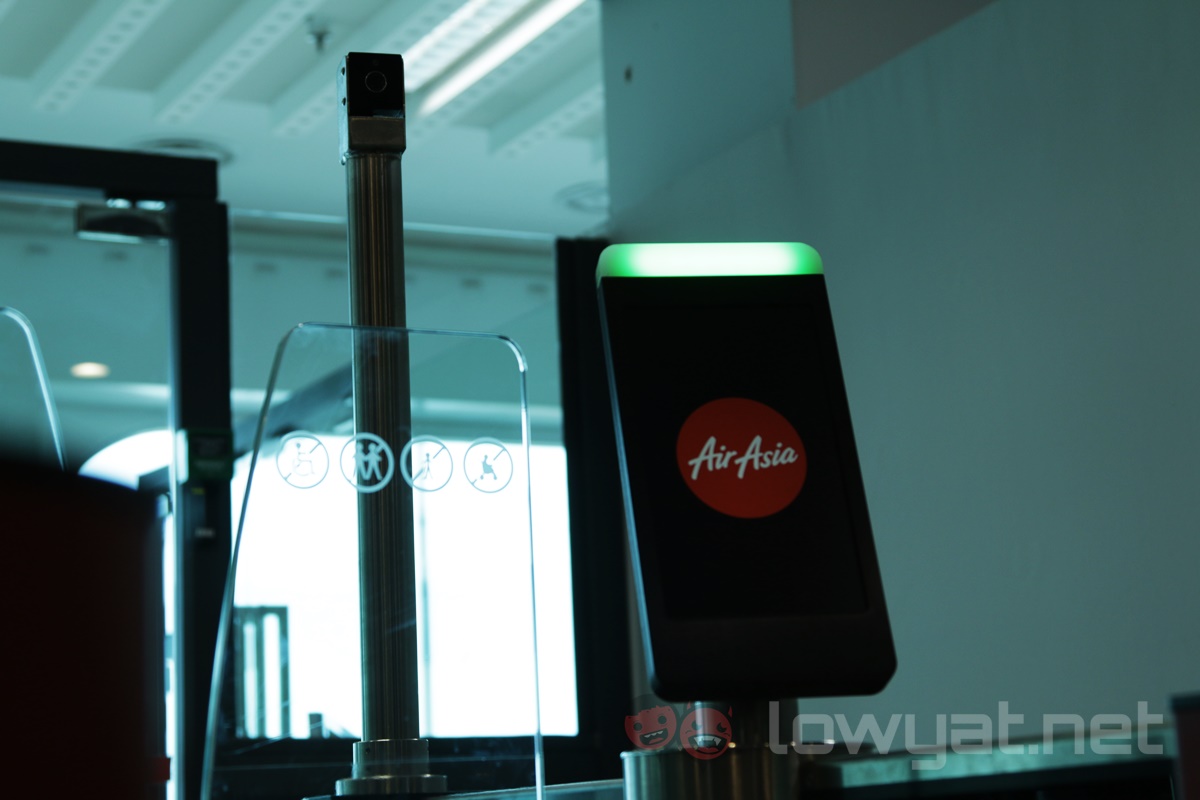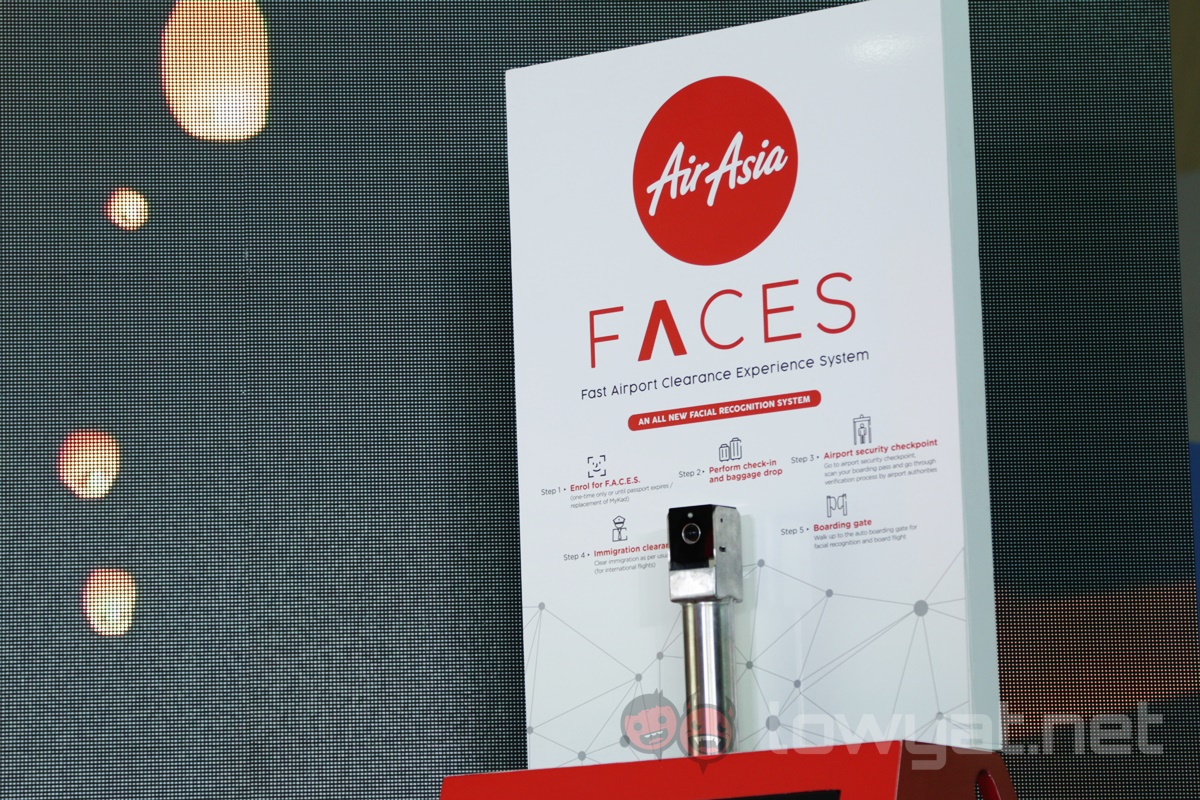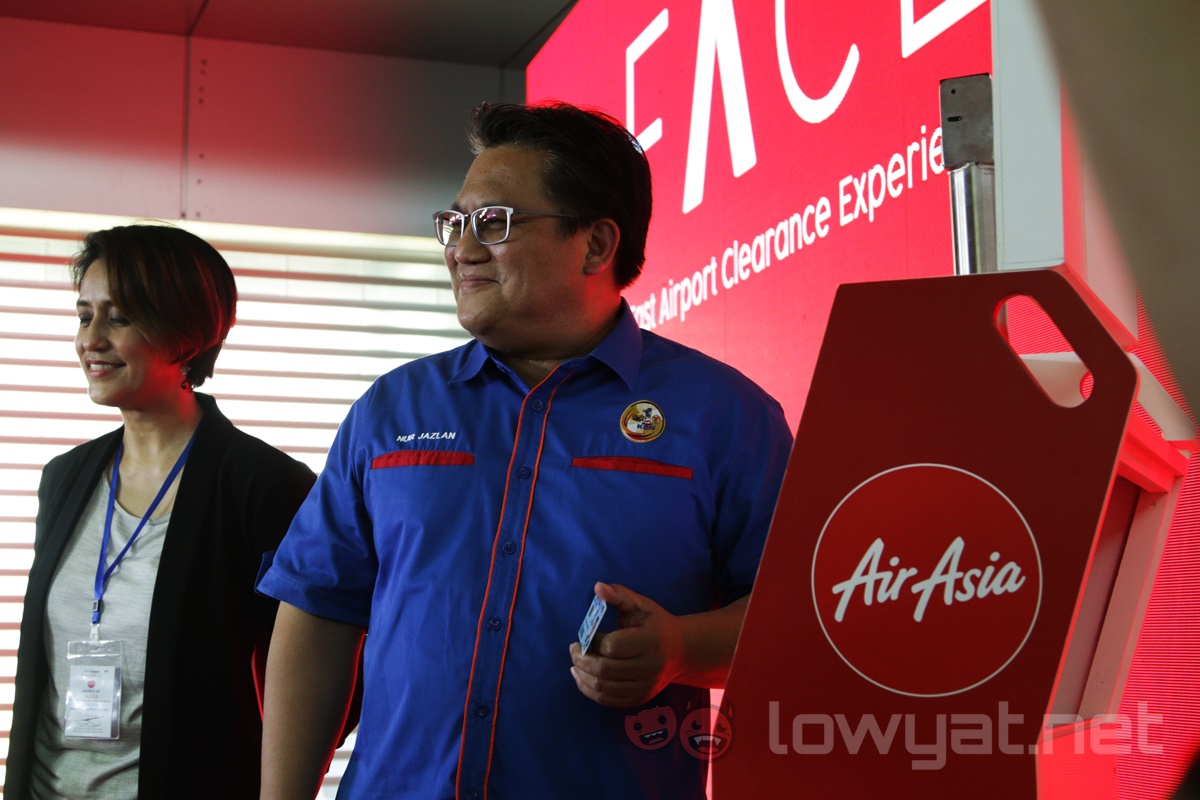AirAsia has officially launched the use of a facial recognition boarding system at Senai International Airport, Johor Bahru. The Fast Airport Clearance Experience System, or F.A.C.E.S., uses biometric verification to allow travelers to have a more seamless boarding experience. Making the budget airline the first in Asia to deploy such technology.
Registering with the F.A.C.E.S. system can be done at the specific kiosk located within Senai. According to AirAsia, the process takes about 30 seconds and only needs to be done once. There, the person’s face is scanned with a camera that registers between 100 and 180 points and matches it with the corresponding Mykad or passport information (registration will need to be done again in the event that either of these documents is replaced). According to the airline, the variation in facial data points is due to potential interference from things like headscarves or glasses.
Once registered, will no longer need a boarding pass to enter the gate for all future flights out of Senai. That said, a boarding pass is still required to clear airport security; as mandated by the Department of Civil Aviation. This biometric verification does not include immigration and border processing either.

AirAsia has set up one enrollment kiosk and three auto-boarding gates (at Gates 1, 2, and 3) in Senai International Airport. It should take between 1.5 and five seconds to be verified at the gate. At most, it would be due to lighting conditions and the system requiring extra time to focus on facial features before making a recognition.
Limitations within the system could prevent certain individuals from using the F.A.C.E.S. system. AirAsia has placed an age limit of those over the age of 18 years old. Which is largely due to how facial features change as a person grows up; and due to younger children not having Mykads. The cameras also have a fixed position, meaning that only people within the height of 145 and 190cm will be able to use it accurately. Even with these guidelines in place, it’s expected that 20 percent of AirAsia passengers will still run into problems. A particularly large margin of error, but nothing too unusual for a pilot project.

On the whole, AirAsia isn’t saying that F.A.C.E.S. will make boarding times faster on flights. Saving at most one to two minutes if everything goes smoothly. However, the goal is to meet the needs of passengers who want a more seamless experience in passing through the gate. Reducing the hassle of having to dig out the boarding pass while passing through multiple stations.
At the moment, the pilot project in Senai International Airport does not have an expansion date. AirAsia’s short term plans are to expand it to the remaining boarding gates, with no long term plans at the moment. There’s no news if this will be extended to any other airports in the country.
Follow us on Instagram, Facebook, Twitter or Telegram for more updates and breaking news.



